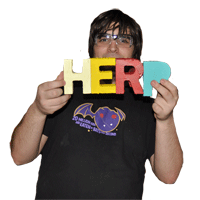New to the game?
You may wish to start with the sample game, a step-by-step guide to gameplay.
Game
People Wars is a customizable card game for two or more players. Each player must bring their own 54-card deck to the game.
The goal of the game is to be the first to score 100 points worth of tasks or obtain 15 kill counters. A player also loses immediately if they run out of cards in their deck or have no characters in play.
Setup
Each player shuffles their deck and draws 7 cards. Each player may redraw their initial hand once. Each player then plays at least one character card from their hand, face-down (they may play more, up to the usual limit of 5). Decide who goes first by any mutually-agreeable means. Everyone flips over their characters at once.
Turn Sequence
Each turn proceeds as follows. Each phase is explained in further detail below. Each turn must go through each phase in order (so you cannot play cards after using even one Attack or Skill).
1) Draw
2) Work
3) Play
4) Attack
5) Reconcile
Play then passes to the player's left.
Turn Sequence - Draw
During the draw phase, a player first decides whether they want to skip their Attack phase this turn. Additionally, a player may discard a card from their hand. They then draw 1 card, plus 1 card if they skipped Attacking, plus 1 card if they discarded a card.
Remember: Decisions on skipping or discarding must be made before any cards are drawn.
A player loses immediately when they run out of cards in their deck.

Turn Sequence - Work
For each of their working characters, a player places one work counter on one (and only one) of their tasks. (A character with at least one attached task is "working".)
Note that tasks may be completed (have work counters equal to or greater than their "Work" value), but are not scored until the Reconcile phase.
Turn Sequence - Play
A player may play any cards they wish this turn, subject to any play restrictions. Note that cards cannot be played until the effect of a previous card play has fully resolved (see "Resolving effects" below).
Character - A player may only have 5 characters worth of character cards in play at a time (the "character limit"). Note that certain cards (such as dual characters) may count as more than one character. A player may not play duplicate characters (characters with exactly the same name).
Dream - A player may play as many dream cards as they like per turn.
Task - Playing these cards requires traits, and is limited only by the availability of traits to play them. See "Exhaustion" below for more information. A played task card is attached to one of the characters exhausted to play it.
Event - Playing these cards requires traits, and is limited only by the availability of traits to play them. See "Exhaustion" below for more information. There are four types of events; see "Events" below for more information.
Storage - A player may only play a Storage card if they do not already have one in play.
Item - A player may play two item cards per turn
A player may also retreat characters during their Play phase.
Turn Sequence - Attack
A player may use Attacks and Skills on their characters. Exhausted characters cannot use Attacks or Skills. To use an Attack or Skill, exhaust the character, then exhaust items. The items next to the Attack or Skill name are a minimum requirement; you may exhaust more items than that.
For purposes of damage calculation, additive effects take place before multiplicative effects. Also note that placing damage counters does not count as dealing damage, and therefore does not benefit from + or - damage effects.
Obviously, only non-exhausted items may be exhausted and used.
Turn Sequence - Reconcile
During their reconcile phase, a player does four things, in any order.
- Score any completed task cards on their characters.
- Refresh one of their exhausted cards per character they have in play.
- Discard all of their in-play Dream cards (and any cards attached to them).
- Discard down to 7 cards (the "hand limit").
Scoring, refreshing, and discarding are not optional. If a player has fewer exhausted cards than characters, they refresh all of their exhausted cards. A player wins immediately when they score 100 or more points worth of task cards. Players may not score duplicate task cards.

Exhaustion
Characters may be exhausted for their traits (or just exhausted as an effect), and items may be exhausted to fuel Attacks and Skills. To exhaust a card, turn it 90 degrees so it is sideways.
Playing event and task cards requires traits. Along the right edge of an event or task card are various trait markers. You must exhaust characters to provide those traits. The traits that a character has are also along the right edge of the card. Each character may only provide one trait at a time exhausted, and each character may not be exhausted again during that turn.
For example, the event card "Rocking Out" requires "Gamer" and "Music" to play. The "Tim M. - Game Creator" character has both traits, but since each character can only provide one per exhaustion, you will need to exhaust Tim and one other character (with either "Gamer" or "Music") to play the "Rocking Out" card.
Kill Counters
One method of winning involves collecting 15 kill counters. You gain kill counters when you kill a character or a player kills their own characters, according to the following rules:
If you kill a single character by depleting its HP, you gain two kill counters.
If you kill a dual character by depleting its HP, you gain three kill counters.
If you kill any character with a "kill" effect, you gain one kill counter.
If a player kills their own character (with a "kill" or "sacrifice" effect, or with damage), each other player gains one kill counter.
Note that, even if you kill a character by placing damage counters on it, you still gain the full two kill counters (even though placing damage counters does not count as dealing damage). A player wins immediately when they gain their 15th kill counter.
Retreating
A player may retreat characters during their play phase. Any character with a "Ret" value may be returned to their hand by discarding that number of cards from the top of their deck. Characters without a "Ret" value may not retreat. All attached cards are discarded.
Dreams
Dream cards play for free and are unlimited to play. While in play, they count as characters for all gameplay effects, rules, and card text (except for character limits and uniqueness; see below). They also still count as Dream cards for text. They can be exhausted normally to play other cards, and count toward the number of refreshes available when reconciling. However, all in-play Dream cards are discarded at the end of their owner's turn. Dream cards also do not count toward character limits, and do not count toward character uniqueness. (So you can play a Keith B. character card even if you already have a Keith B. Dream card in play.)
Events
There are four types of events: normal, attach, persist, and interrupt. Normal events are played, cause an effect, and are immediately discarded.
Attach events are attached to one of that player's cards of the specified type (doesn't have to be one of the exhausted characters, for character attach events).
Persist events remain in play and have a constant effect.
Interrupt events are treated like normal events (and are discarded after user), except they may be played while other cards are resolving, or even during another part of the turn sequence, as indicated by the card. Note though that you cannot play Interrupt events during other players' turns (unless explicitly allowed by an ability, skill, or power).
Attach and persist events may also have HP values... these cards may be targeted and damaged like characters, and are discarded when they run out of HP.

Storage
Each player may only have one storage card in play at a time, and may not play another until the previous one leaves play. A storage has a number of "uses", and is discarded after that number is reached. Storage cards generally hold cards for various purposes; cards on a storage are not in play and are hidden from view, but may be examined by their owner at any time. When a storage is discarded, any cards left on it are also discarded. Cards may only be placed in a storage during that player's turn.
Deckbuilding
There is a limit of 4 copies of a given named card per deck (including basic item cards). Different versions of the same card (such as Tim M. from the base set and an expansion) count as the same card. A deck must have exactly 54 cards.
Thanks
Thanks to Tim M., Mark L., Tim F., Gabriel R., Kellie M., Andrew K., Tim V., Matt K., Tim B., Dennis M., and Tim E. for their help in playtesting the game. Also thanks to Ian L. for his feedback on card design.
Also thanks to the awesome jcreed for the Expo font used on the cards.